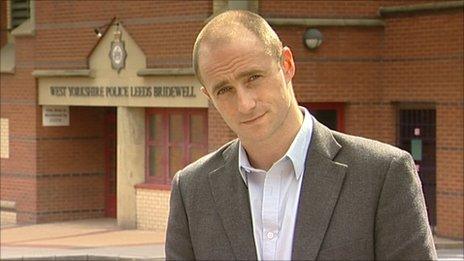Colin Norris: Serial killer nurse case referred to Court of Appeal
- Published
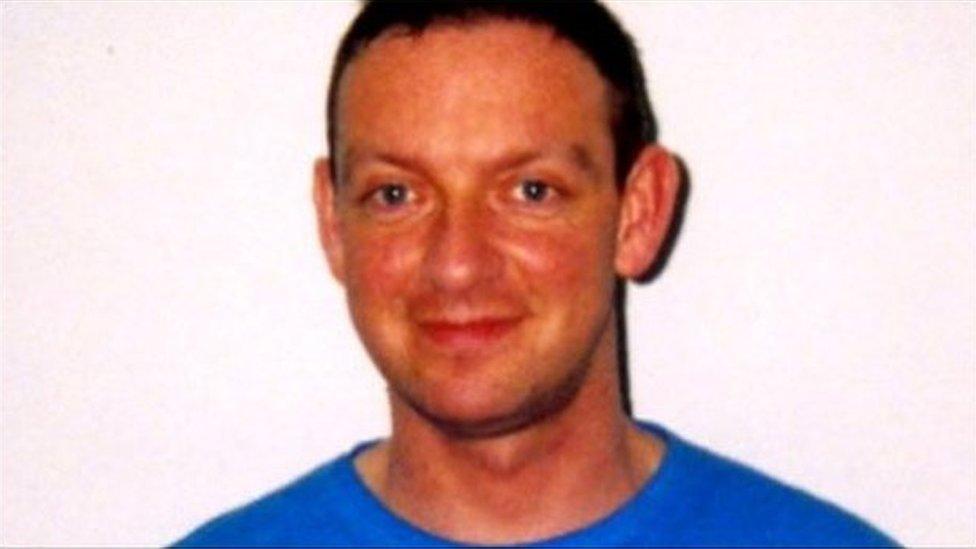
Colin Norris was convicted of murdering four elderly patients
The case of a nurse who was was jailed for life for murdering four patients and attempting to kill a fifth has been referred to the Court of Appeal.
Colin Norris, 45, was convicted in 2008 of injecting the patients with insulin in hospitals in Leeds.
The Criminal Cases Review Commission said new evidence created a "real possibility" his conviction was unsafe.
BBC Scotland and Panorama investigations had previously cast doubt on the verdicts.
Norris, who was originally from Glasgow, was convicted of murdering Doris Ludlam, 80, Bridget Bourke, 88, Irene Crookes, 79, and 86-year-old Ethel Hall.
He was alleged to have injected them with lethal doses of insulin at Leeds General Infirmary and the city's St James's Hospital in 2002.
He was also found guilty of attempting to murder 90-year-old Vera Wilby.
All five women were elderly inpatients on orthopaedic wards where Norris worked as a nurse.
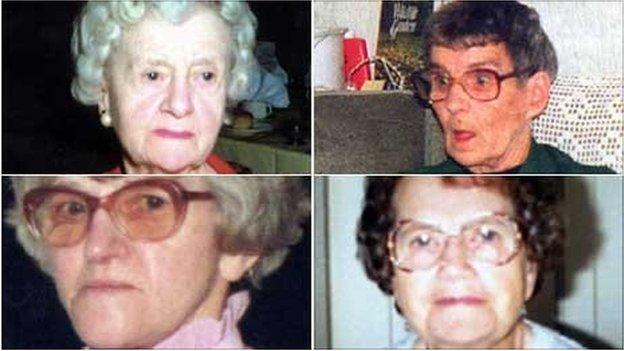
Clockwise, from top left: Bridget Bourke, Irene Crooks, Ethel Hall and Doris Ludlam
The CCRC said its decision followed a detailed review of what it described as a "complex and difficult case", external.
It noted the case against Norris, who was jailed for a minimum of 30 years, was "wholly circumstantial" and "heavily reliant on expert opinion evidence".
As a result of new expert evidence, the CCRC said: "There is a real possibility that the Court of Appeal will decide that that Mr Norris's conviction for the murder/attempted murder of one or more of the four patients is unsafe."
In the case of Mrs Hall, it said the conviction depended upon support from the other four cases that "no-one other than Mr Norris could have been responsible".
It concludes: "In light of the new expert evidence, the CCRC is satisfied that this assertion is now less secure and that, as a result, there is a real possibility that the Court of Appeal will quash this conviction too."
BBC Scotland Investigations correspondent Mark Daly first reported his concerns about the conviction in 2011.
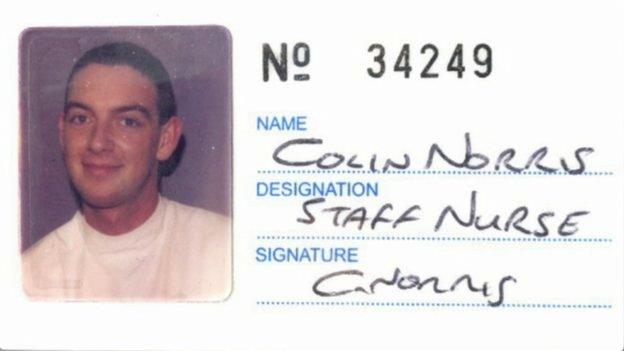
Colin Norris was sentenced to 30 years in prison
During a later Panorama investigation, he was told by two experts that there could be a natural explanation for the blood test results - a rare condition called insulin auto immune syndrome.
In 2015, the foreman of the jury that convicted Norris told the BBC he now believed he was innocent and that if the case was presented with the new evidence, he doubted it would get to court.
Norris' case has also been championed for more than a decade by Inside Justice UK, external.
The campaign group said it was "thrilled" by the news, which was announced on Norris' birthday.
The appeal was led by Michael Mansfield QC.


Dubbed the "Angel of Death", Colin Norris was the young nurse who went rogue and became a serial killer.
He was the common denominator in a cluster of unexplained deaths from hypoglycaemia, or extreme low blood sugar, in elderly patients who were not diabetic.
There was no physical evidence against him; no fingerprints or DNA. But a circumstantial case was built and he was prosecuted, convicted and given a 30-year jail term.
My involvement in the case started in 2011, and alongside Louise Shorter from Inside Justice, we painstakingly investigated the case. We became more convinced there could be a problem with the evidence and that an innocent man may have been wrongly imprisoned as a serial killer.
'Glimmer of hope'
We produced two documentaries, including a BBC Panorama programme in 2014, each raising fresh concerns about the conviction. New applications were made to the CCRC to consider the case afresh. But the years came and went, and still the CCRC hadn't reached a decision.
Behind the scenes, Norris's lawyers, led by eminent QC Michael Mansfield, pressed on, searching for still fresher developments in the scientific knowledge around hypoglycaemia.
And now, nearly 10 years since the CCRC first looked at the case, it has decided Colin Norris's convictions may no longer be safe and should be tested again at the Court of Appeal.
Norris received the news at his high security prison at HMP Frankland in Durham on his 45th birthday. He now has a glimmer of hope his name could be cleared.
- Published28 January 2015
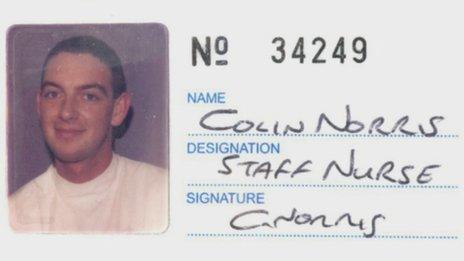
- Published15 December 2014
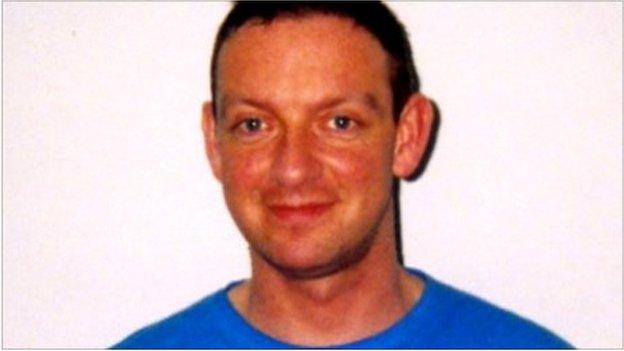
- Published4 October 2011
